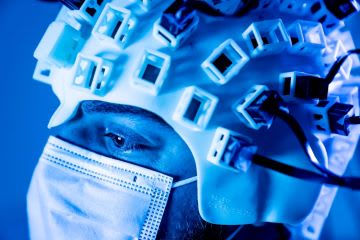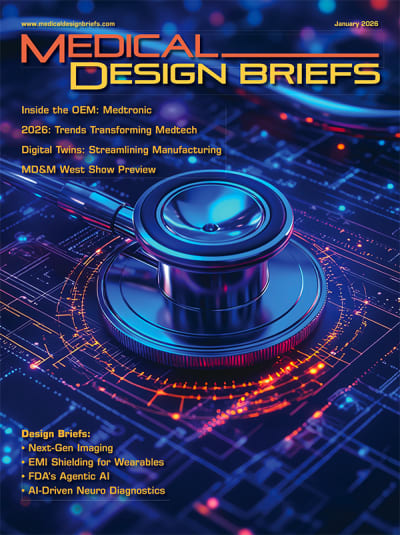
Researchers have designed a lightweight helmet with tiny LEGO-size sensors that scan the brain while a person moves. The helmet is the first of its kind to accurately record magnetic fields generated by brain activity while people are in motion. This advance could make it easier to conduct brain scans in young children and individuals with neurological disorders who can’t always remain still in conventional scanners.
Researchers can use the wearable brain scanner, which can be adapted to different head sizes and shapes, to learn more about brain development and what happens in the brains of children and adults who develop neurological conditions such as autism, epilepsy, stroke, concussion, and Parkinson’s disease.
A new matrix coil system features 48 smaller coils on two panels positioned around the participant. The coils can be individually controlled and continually recalibrate to compensate for the magnetic field changes experienced by the moving sensors, ensuring high-quality magnetoencephalography (MEG) data are recorded. (Image credit: Clayton Metz for Virginia Tech)
For more information, visit here .



